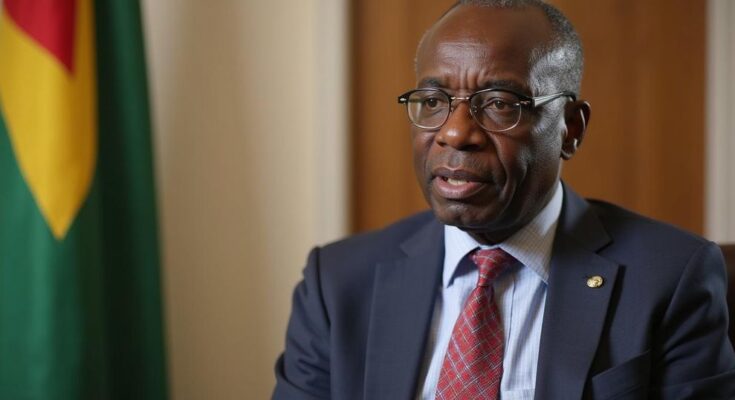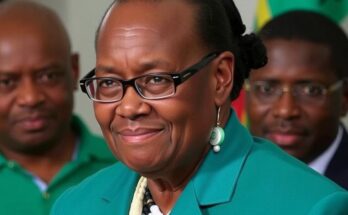Professor Jok Madut Jok asserts that the South Sudanese government has misled citizens about the prospects of elections, focusing instead on deflecting attention from serious issues like hunger and instability. He believes that repeating extensions of the transitional period indicate a lack of real commitment to governance reform. Additionally, the Tumaini Initiative, aimed at uniting political factions, faces skepticism due to existing government strategies prioritizing power retention over genuine solutions to the nation’s systemic problems.
In a recent interview with Radio Tamazuj, Professor Jok Madut Jok, an esteemed anthropologist and former undersecretary in the South Sudanese government, voiced strong criticisms regarding President Salva Kiir’s administration and the prolongation of the transitional government period in South Sudan. He articulated that public expectations regarding forthcoming elections have been mismanaged by the government, asserting that President Kiir and the transitional government have consistently misled the citizens into believing that elections would take place despite failing to meet the necessary prerequisites outlined in the 2018 peace agreement. Professor Jok emphasized that the extension of the transitional period appears to be a tactic aimed at diverting attention from critical issues like hunger, widespread displacement, and systemic financial collapse that plague the nation. He expressed disbelief regarding the government’s commitment to implementing the 2018 peace agreement, framing their actions as continuations of a pattern of postponements that have persisted for years. Furthermore, he posited that, given the shortcomings in achieving previously agreed benchmarks for elections, extending the transitional period without tangible reforms does not provide any realistic hope for improvement. He underscored a lack of viable options remaining for the South Sudanese populace to influence governmental actions effectively, highlighting the weakness of civil society and the absence of substantial international pressure to enforce compliance with commitments. In terms of the ongoing Tumaini Initiative in Kenya, which seeks to mediate discussions between opposition groups and the South Sudanese government, Professor Jok expressed skepticism about its potential effectiveness. He noted that the government’s intention appears to be focused on co-opting opposition leaders rather than addressing the systemic challenges faced by South Sudan. He called for a more thorough examination of the fundamental issues that have perpetuated instability and suffering in the country rather than mere power-sharing arrangements that maintain the status quo.
The political landscape in South Sudan is marked by ongoing instability and repeating cycles of conflict despite the signing of various peace agreements. Since its independence in 2011, the nation has grappled with severe humanitarian crises exacerbated by internal strife. Following the 2018 revitalized peace agreement, there were expectations for a political transition and eventual elections to resolve longstanding issues. However, consistent failures to meet the conditions necessary for credible elections and ongoing governmental extensions have led to widespread disappointment and skepticism among the populace regarding political leadership. The Tumaini Initiative, aimed at unifying disparate opposition factions, reflects efforts to foster dialogue but faces challenges rooted in mistrust and entrenched political interests.
The insights provided by Professor Jok underline a critical juncture in South Sudan’s quest for stability and governance. His emphasis on the deceptive tactics of the current government and the failures to enact meaningful reforms resonate with many citizens who are disillusioned by false promises. The serious concerns raised regarding the efficacy of international mediation efforts, such as the Tumaini Initiative, call for a re-evaluation of approaches to conflict resolution and governance in South Sudan, underscoring the need for genuine and inclusive dialogue that transcends the superficial power-sharing frameworks of the past.
Original Source: www.radiotamazuj.org




